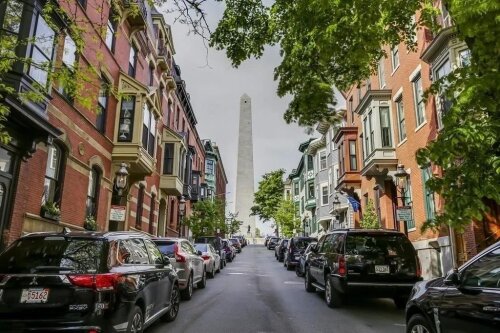Best Land Use & Zoning Lawyers in Indiana
Share your needs with us, get contacted by law firms.
Free. Takes 2 min.
Free Guide to Hiring a Real Estate Lawyer
Or refine your search by selecting a city:
List of the best lawyers in Indiana, United States
About Land Use & Zoning Law in Indiana, United States
Land use and zoning law in Indiana governs how land within cities, towns, and rural areas can be used and developed. These laws establish specific districts or zones, such as residential, commercial, industrial, or agricultural, each with rules about what activities and structures are permitted. The goal is to manage growth, protect property values, and balance private interests with community needs. Zoning regulations are largely established and enforced at the local government level, but they must also comply with state statutes and, at times, federal laws. In Indiana, zoning decisions are often made by planning commissions, boards of zoning appeals, and local legislative bodies.
Why You May Need a Lawyer
Navigating land use and zoning regulations can be complex, and there are many scenarios where legal assistance becomes crucial. You may need a lawyer if you:
- Are seeking a zoning variance or special exception to use land in a way not ordinarily permitted by current zoning rules.
- Wish to challenge or appeal a zoning decision made by a local board or city council.
- Are facing enforcement action or penalties for alleged code violations.
- Need guidance on land development, subdivisions, or rezoning proposals.
- Want to understand how zoning changes could affect your property’s use or value.
- Require assistance with permitting, licensing, or navigating environmental regulations tied to land use.
A lawyer experienced in Indiana land use and zoning law can help interpret local ordinances, advocate for your interests before governing bodies, and help resolve disputes efficiently.
Local Laws Overview
Local laws are central to land use and zoning matters in Indiana. Each municipality or county typically adopts its own zoning ordinances based on the authority granted under the Indiana Code Title 36, Article 7. These ordinances divide communities into zoning districts and specify allowed uses, such as residential, commercial, agricultural, or mixed-use.
Key local law aspects include:
- Zoning Classifications: Each district has restrictions on the type of buildings and business activities permitted.
- Permitting: Construction, renovation, and land development usually require permits, which are subject to local review.
- Variances: Property owners can request exceptions to zoning rules under specific circumstances, typically reviewed by a Board of Zoning Appeals.
- Conditional Uses: Some uses may be allowed conditionally if specific criteria are met and approved during public hearings.
- Nonconforming Uses: Existing properties that do not meet current zoning requirements may be allowed to continue under certain conditions.
- Enforcement: Local governments can issue citations, fines, or initiate legal proceedings for ordinance violations.
Always check with your local government planning or zoning office for the most current and relevant regulations, as rules can differ widely from one Indiana community to another.
Frequently Asked Questions
What is the difference between land use and zoning?
Land use refers to the way land is utilized (residential, commercial, agricultural, etc.), while zoning is the local law that designates and restricts those uses within specific geographic areas.
How are zoning changes made in Indiana?
Zoning changes typically start with an application to the local planning commission. The commission reviews proposals, holds public hearings, and makes recommendations to the legislative body, which then votes on the change.
Can I operate a business from my home in Indiana?
Home-based businesses may be allowed in residential areas, but local ordinances often limit the type and scale of activity. You may need a home occupation permit or a variance.
What is a zoning variance and how do I get one?
A variance is permission to deviate from strict zoning rules due to unique circumstances. To get one, you must apply to the Board of Zoning Appeals and demonstrate practical difficulty or hardship.
What if my property does not comply with current zoning laws?
If your use existed before the zoning law changed, it may be considered a legal nonconforming use. However, expansion or changes to the nonconformity may be restricted.
How can I challenge a zoning decision in Indiana?
You can appeal some decisions to the Board of Zoning Appeals or to a court, depending on the case. Strict deadlines and procedures apply, so consulting a lawyer promptly is important.
Do I need permits for new construction or renovations?
Yes, most construction or significant renovations require permits. These applications are reviewed for zoning compliance and other legal requirements.
What is a conditional use permit?
A conditional use permit allows property owners to use land in certain ways not generally permitted in a zoning district if specific standards are met and the governing body approves it.
Who enforces zoning laws in Indiana?
Local code enforcement officers, building departments, or planning offices are responsible for enforcing zoning laws and handling violations.
Where can I find my local zoning ordinance?
Most counties and cities publish zoning ordinances on their official websites or provide copies through the local planning or zoning offices. You can also contact these offices for assistance.
Additional Resources
If you need more information or wish to research further, the following resources may be helpful:
- Indiana Office of Community and Rural Affairs - provides guidance on development and planning issues.
- Local City or County Planning and Zoning Department - offers information on zoning maps, ordinances, and development applications.
- Indiana Chapter of the American Planning Association - includes educational materials regarding planning and zoning statewide.
- Indiana Bar Association - can assist with attorney referrals for land use and zoning matters.
- Indiana Department of Local Government Finance - provides resources related to property and land regulations.
Next Steps
If you require legal assistance with a land use or zoning issue in Indiana, start by gathering all relevant documents related to your property, such as deeds, site plans, notices, or correspondence with the local government. Identify the specific concern or project, and contact the planning or zoning office in your city or county to obtain the current ordinances and application forms if needed. If your issue involves a dispute, enforcement action, or complex application, consider consulting with an attorney who specializes in Indiana land use and zoning law as soon as possible. They can guide you through procedural requirements, advocate for your interests, and help you avoid costly mistakes or delays.
Taking these steps will help you understand your options and protect your rights in all land use and zoning matters in Indiana.
Lawzana helps you find the best lawyers and law firms in Indiana through a curated and pre-screened list of qualified legal professionals. Our platform offers rankings and detailed profiles of attorneys and law firms, allowing you to compare based on practice areas, including Land Use & Zoning, experience, and client feedback.
Each profile includes a description of the firm's areas of practice, client reviews, team members and partners, year of establishment, spoken languages, office locations, contact information, social media presence, and any published articles or resources. Most firms on our platform speak English and are experienced in both local and international legal matters.
Get a quote from top-rated law firms in Indiana, United States — quickly, securely, and without unnecessary hassle.
Disclaimer:
The information provided on this page is for general informational purposes only and does not constitute legal advice. While we strive to ensure the accuracy and relevance of the content, legal information may change over time, and interpretations of the law can vary. You should always consult with a qualified legal professional for advice specific to your situation.
We disclaim all liability for actions taken or not taken based on the content of this page. If you believe any information is incorrect or outdated, please contact us, and we will review and update it where appropriate.
Browse land use & zoning law firms by city in Indiana
Refine your search by selecting a city.













